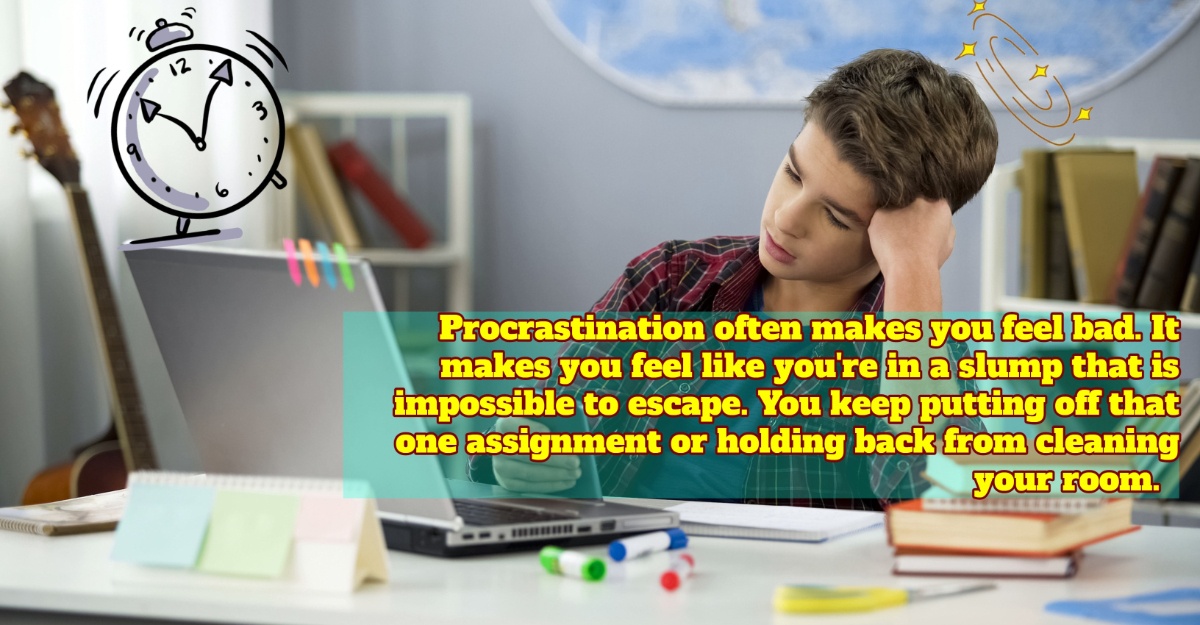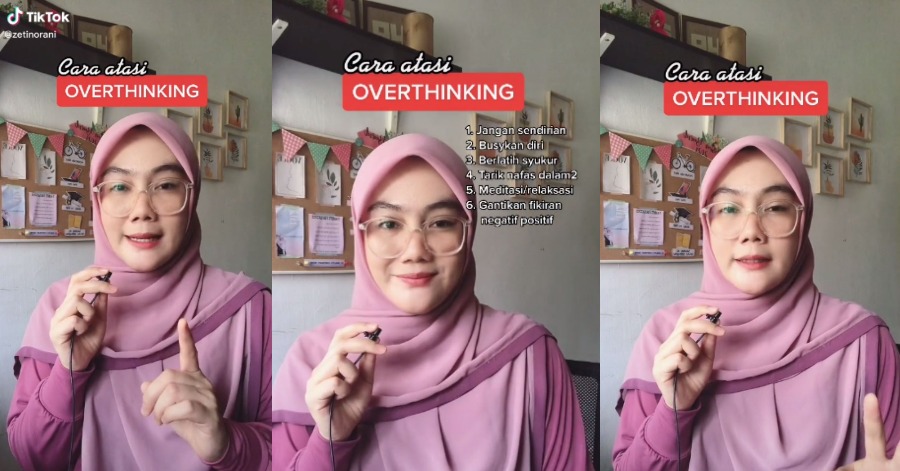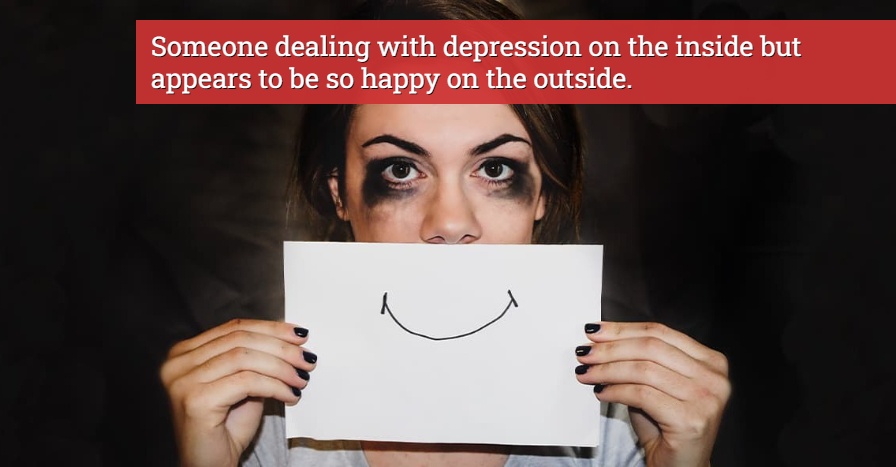Procrastination often makes you feel bad. It makes you feel like you’re in a slump that is impossible to escape. You keep putting off that one assignment or holding back from cleaning your room.
There’s a quote from Bill Watterson in his book, There’s Treasure Everywhere (1996), “A day can really slip by when you’re deliberately avoiding what you’re supposed to do.”
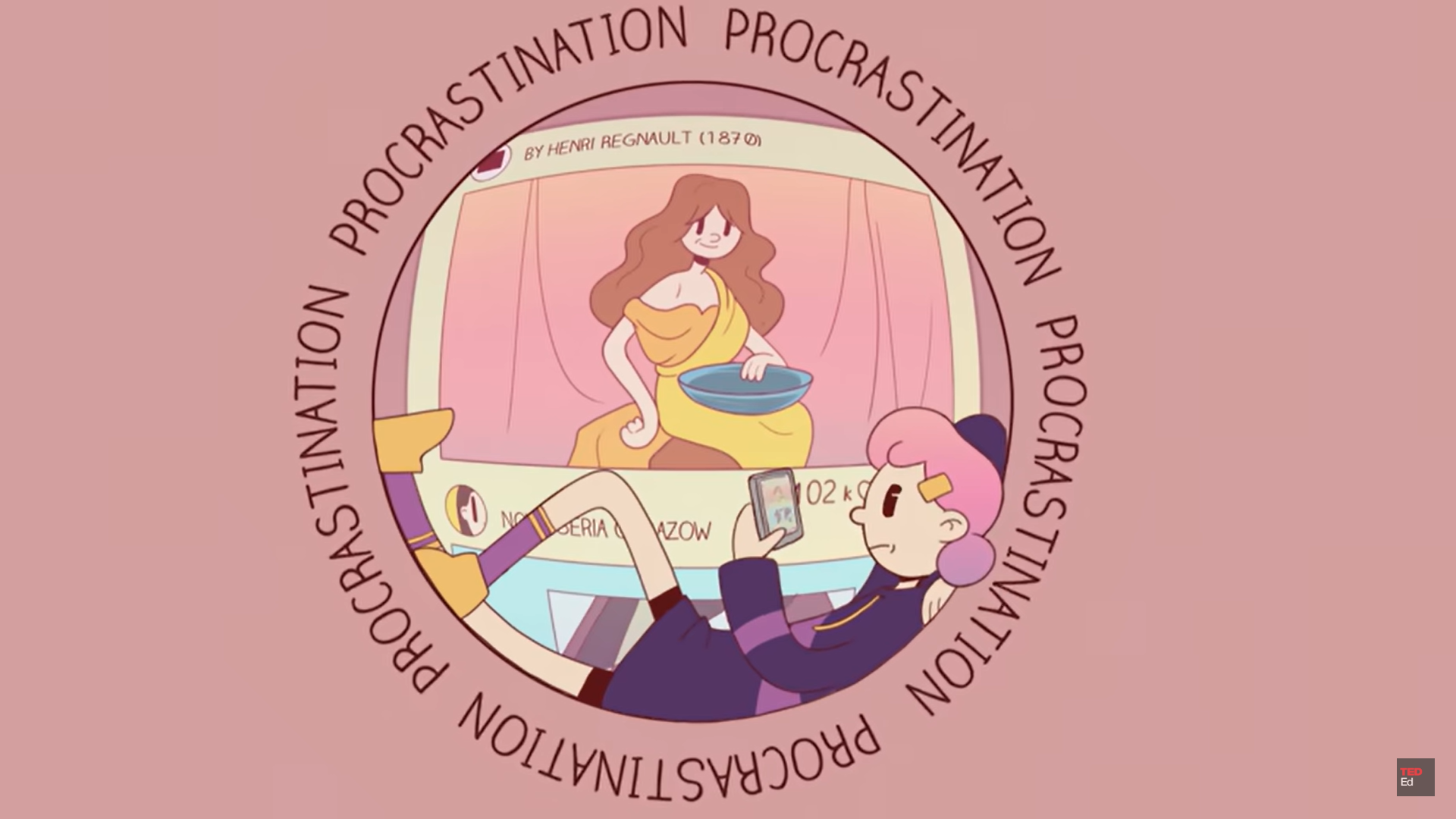
What is procrastination?
There’s a difference between procrastinating and putting something off. Procrastinating is when you deliberately ignore the task without reason when you say you would do it.
Even so, there’s a little voice in you saying procrastination is bad and leads to negative consequences.
So, if procrastination is bad, why do we keep doing it?
Here are the reasons:
- It’s a form of protection
- Similar to how our brain works when facing a dangerous situation, procrastination means we regard the task as a threat.
- It’s a normal reaction when we feel dangered.
- Additionally, this form of reaction is considered a ‘fight, flight or freeze’ response to challenging cases.
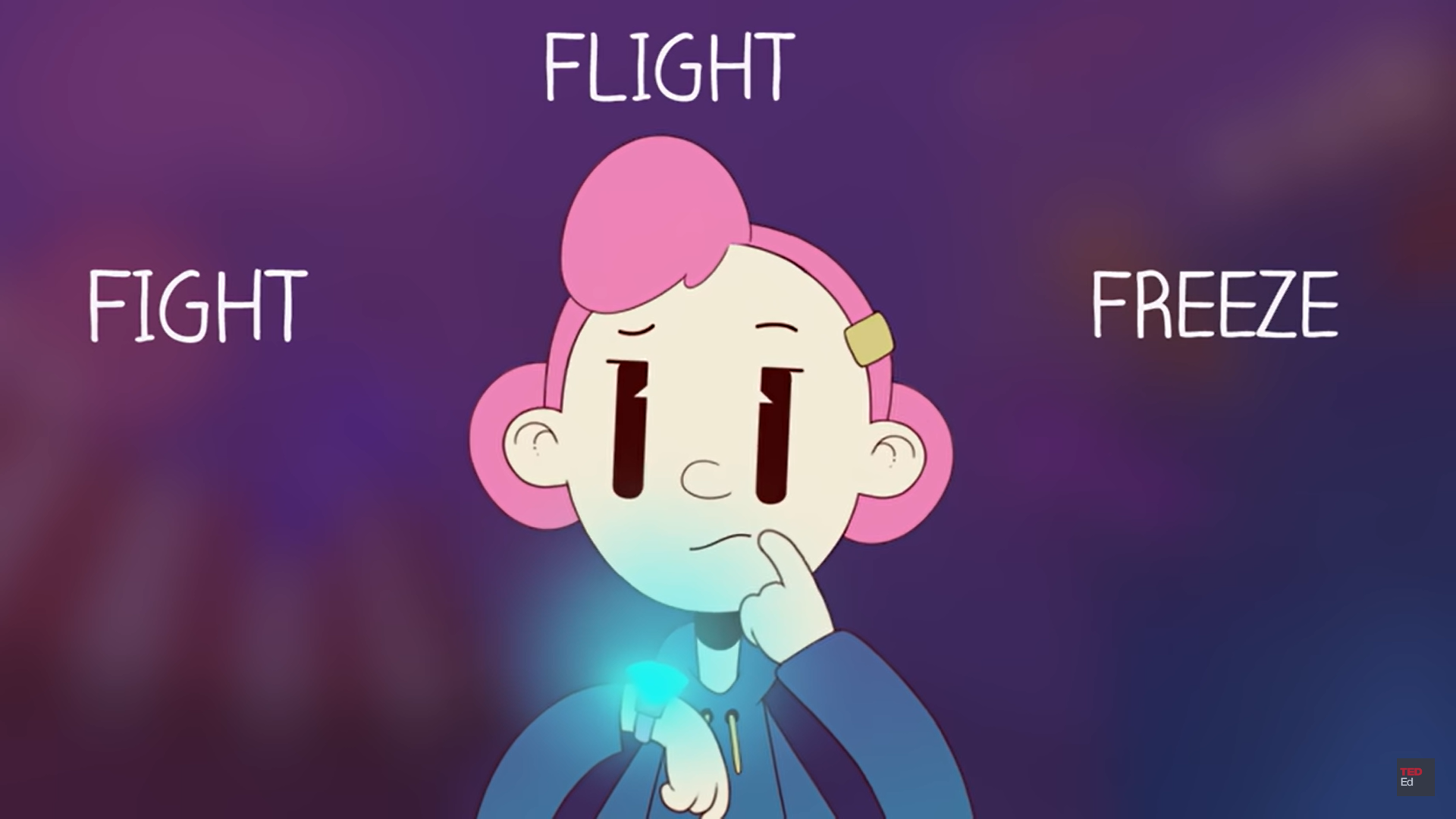
- Hence, we avoid it in favour of some less stressful tasks.
- We avoid things that invoke negative feelings like dread, incompetence and insecurity
- People with low self-esteem tend to procrastinate more regardless of how competent they’re at time management
- They overthink the consequences even before it happens
The misconception about procrastinators
Our body and brain mark laziness with no energy and general apathy. It makes us lie in bed all day doing nothing.
Many of us believe that procrastination is a sign of laziness. But it’s not always like that.
Procrastination is not always because you’re lazy. Sometimes, you’re afraid of the high expectations you put on yourself, hence, skipping those tasks.
The results of procrastination are:
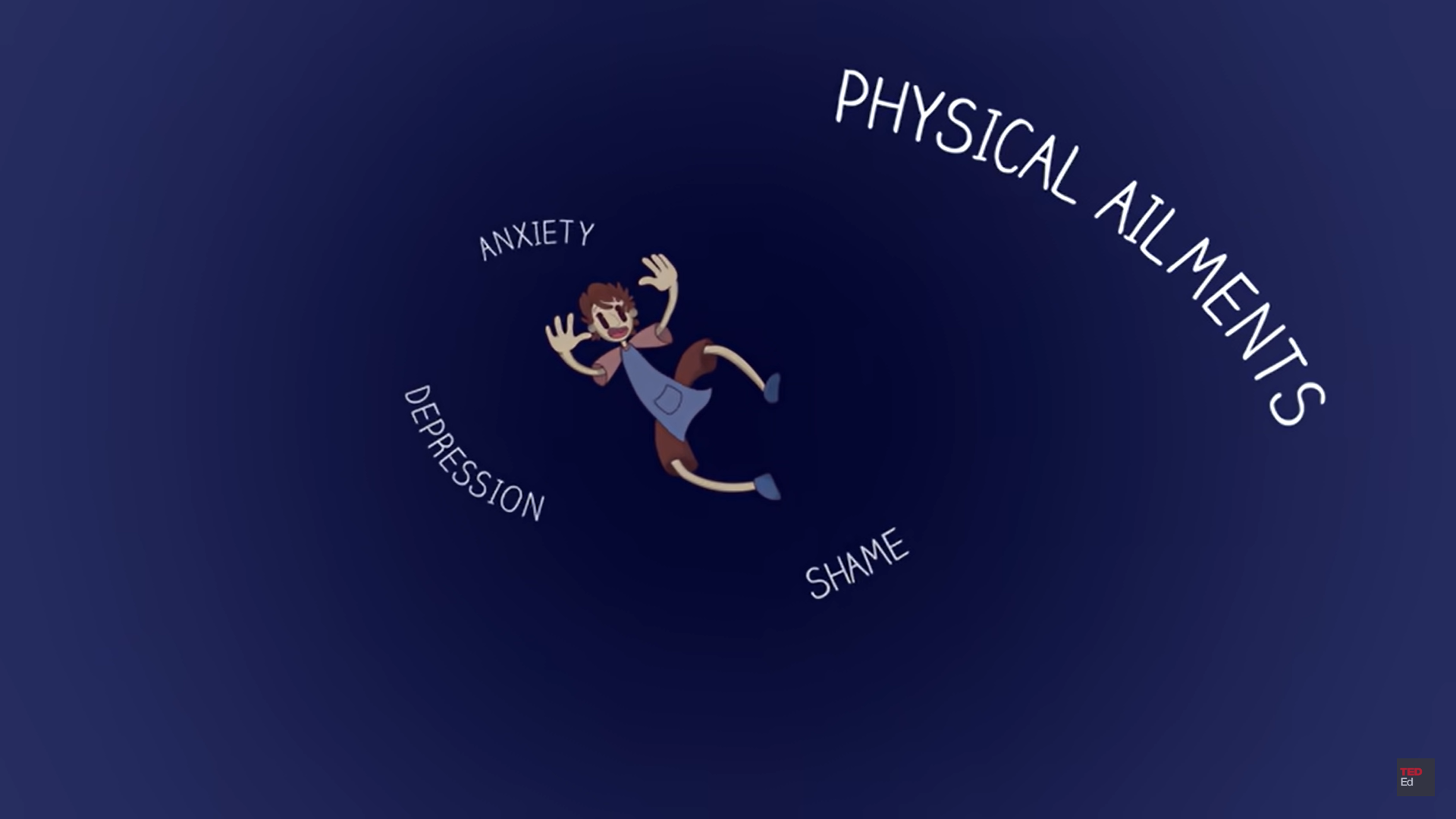
- Anxiety
- Depression
- Constant shame
- High-stress levels
- Sickness associated with stress
How to stop procrastinating?
- Cultivate discipline
- Practice strict time management
- Don’t be too hard on yourself
- Address and reduce your emotions
- Practice self-compassion
Give yourself time to regulate and regress from the stressful tasks you have to go through every day. Forgive yourself and try again tomorrow. Procrastination isn’t always a bad thing, so don’t feel guilty about taking things slow (but again, if the assignment’s due is tomorrow, don’t be too slow!)
Source: Youtube TED-ed

